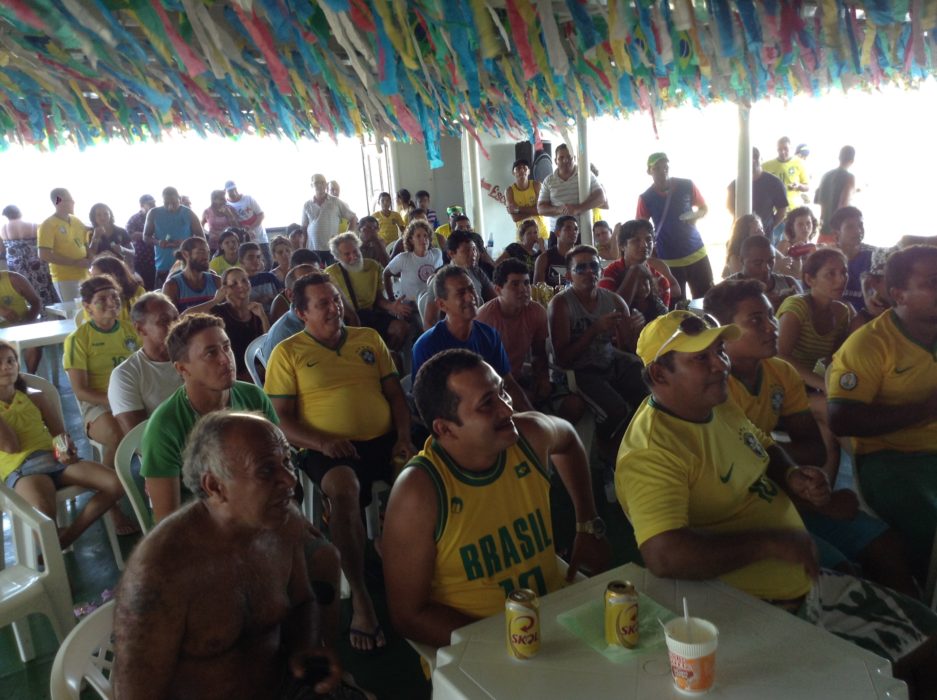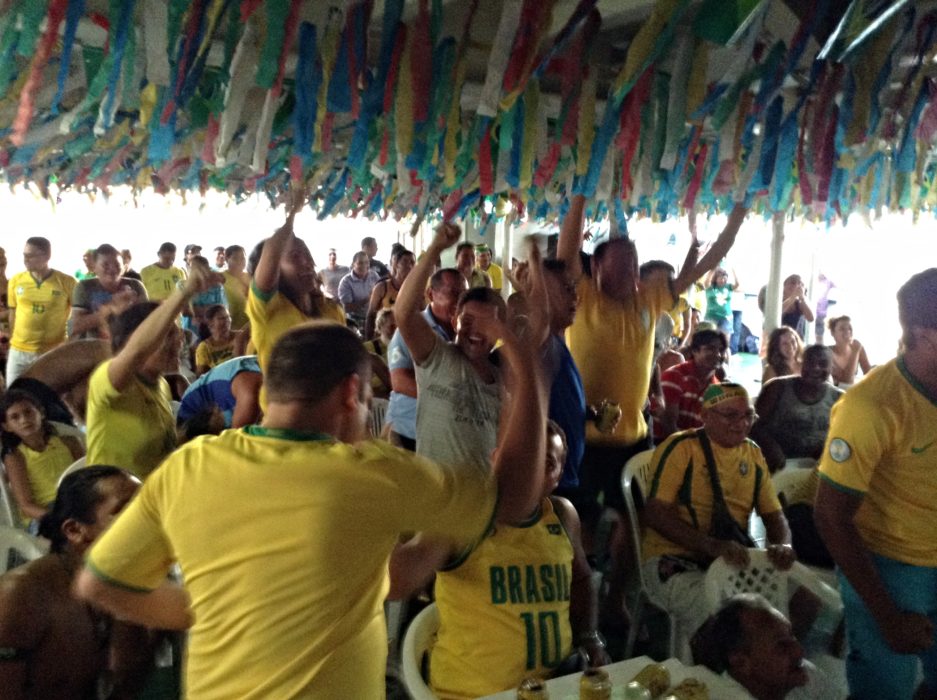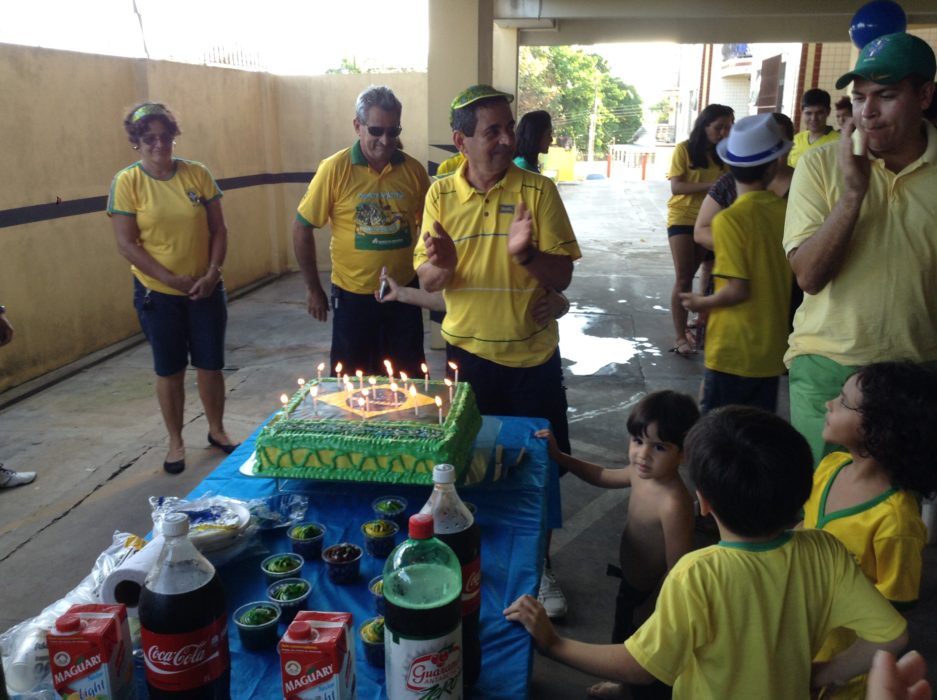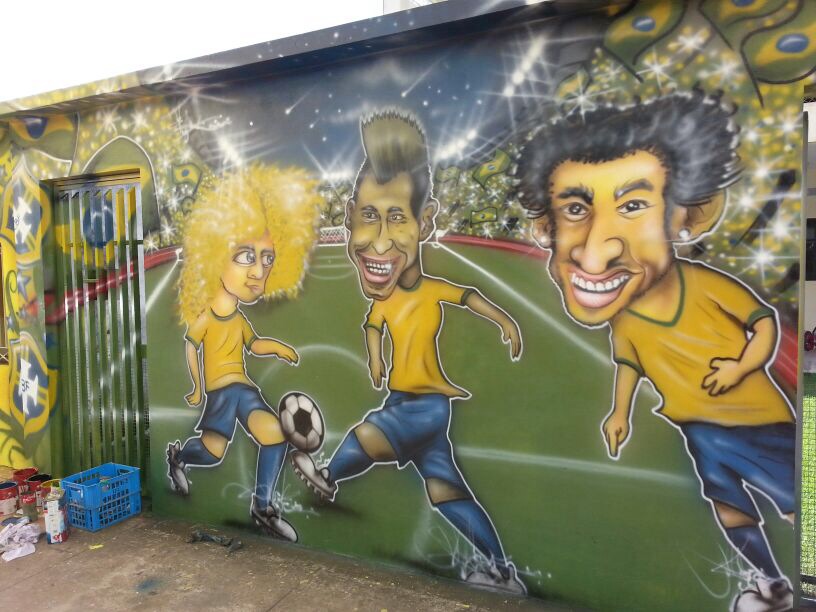
It was a fun party. Perhaps the best I’ll ever go to.
Me and hundred Brazilians were crammed inside a stuffy room of a triple-decker riverboat that was motoring slowly down the Amazon River. Everyone wore knock-off versions of the Brazilian national soccer team’s yellow and green jerseys. Faces were painted. A rainbow of streamers hung from the ceiling. And all eyes were fixed onto a large TV screen that was airing the July 4 World Cup quarterfinal match between Brazil and Colombia.
“I’ve never seen a game on a boat before,” passenger Denilson Sousa Santana told me afterward as we relaxed on our hammocks. “I was with all types of people—Americans, indigenous people, Venezuelans, Colombians.”
For 90 minutes, as our boat wound around bends in the meandering river, our TV would turn to static as we lost reception, and a Brazilian sitting close to the set would frantically rush to the antenna to relocate the soccer game’s signal. Brazil won 2-1, advancing to the semifinals.
“It was very emotional to watch,” Santana said. “Sometimes the TV signal would go out—it made everything electrifying.”
But every party has a hangover. And this one came on July 8, when Brazil suffered a humiliating 7-1 loss to Germany, as I wrote about for Americas Quarterly. It was devastating.
Sure, the sun still rose the next day, people still commuted to work, the Amazon continued to flow into the Atlantic. But this is a nation of 200 million people unified around a single object: the futebol. For Brazil to have suffered such a humiliating defeat is like the US losing the Vietnam War—I don’t think that’s an overstatement.
Soccer is Brazil’s strongest form of soft power. This is the only country in the world to have won five World Cup titles, as well as the only country to have played in every World Cup tournament. The last time Brazil hosted the World Cup was in 1950, and the national team lost in the Final to Uruguay. Brazilians committed suicide. Death threats rained upon Brazil’s goalie. A half-century later, the Brazilian goalie would say on his death bed: “The maximum punishment in Brazil is 30 years imprisonment, but I’ve been paying for 50 years.” Brazil now shares a title with Mexico as the only nations to lose the World Cup twice on home territory.
This is a country that literally held birthday party-like celebrations to kick off the World Cup. The photo below of such a party that I attended in Rio Branco, where the streets were painted with cartoons of the national team’s star players.
Brazil is now in mourning. But in that is something to be noted: Brazil is also unified in its despair. While traveling across the Amazon the past month by ferry along the Amazon River and its tributaries, I watched the national mood shift from anger over the event’s high price tag, to guarded optimism over the surprisingly smooth-running event, to full-on jubilance (CSM, June 12), to despair (CSM, July 9). From the northwestern border state of Acre, to the isolated jungle capital of Manaus, to the northeastern coastal port of Belém, I have seen Brazilians resoundingly enthusiastic to watch the matches and cheer on the Seleção.
For the Monitor, I looked into what the World Cup meant for the economic rivalry of Brazil-Mexico (Mexico’s surprising draw against Brazil underlines their growing economic strength) as well as the political tensions between Brazil-USA (they didn’t play each other, an apt symbol for their diplomatic ties, too). I met long-suffering travelers who journeyed deep into the Amazon to see the World Cup matches at the river port of Manaus. This is one of a half-dozen host cities that invested millions of dollars into a mega-stadium whose lights are now off, with no clear idea of when they’ll come back on. Manaus has no major sports teams, much less a soccer club that could fill up this stadium.
“It’s really emotional to be here,” a Brazilian dentist named Mayoura Alincar told me the other week, as he watched the end of a World Cup match in Manaus. “I don’t know what will happen now. It’s complicated. I hope it’s a good thing for the city.”






